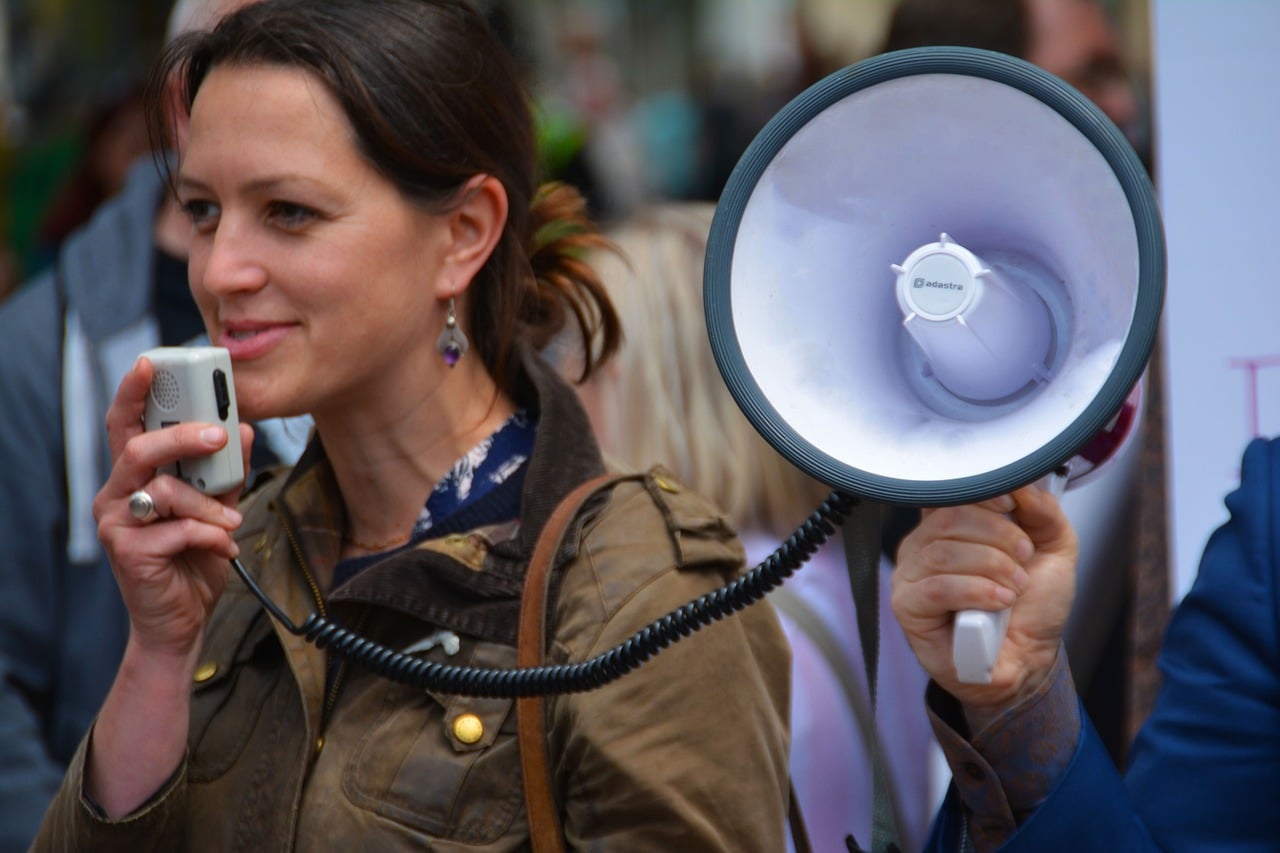Leaders of Illegal Demonstrations Can Now Be Sued For Damages; Court OKs Suit Against Black Lives Matter Organizer Who Led Highway Blockage
WASHINGTON, D.C. (April 29, 2019) – A federal appeals court has ruled that a Black Lives Matter organizer who led his followers to block a highway as part of an illegal protest can be sued by persons injured as a result; a decision likely to prompt civil law suits against others who help organize illegal demonstrations.
Q1 hedge fund letters, conference, scoops etc
This decision could open the door for people who suffer as a result of illegal demonstrations - including blockages of streets or bridges, sit ins or other occupations of buildings or businesses, etc. - to sue the leaders, often easily identified through social media, even if they cannot sue the individual protesters who caused the harm or the organization behind it, suggests public interest law professor John Banzhaf.
Banzhaf has been a major advocate for using legal action as a weapon against demonstrators who go far beyond their First Amendment rights and engage in criminal actions, often targeted at innocent bystanders, as a means of pressuring authorities to act on their grievances, since the threat of arrests, and of small fines for disturbing the peace or other misdemeanors, do not seem to have much deterrent effect.
Moreover, charges Banzhaf, police for a variety of reasons too often do not arrest demonstrators who commit crimes in their presence, so those who wish to organize and/or engage in illegal blockages, occupations, and even theft and/or damage to property are encouraged to generate publicity for the cause and pressure authorities by committing crimes which, while perhaps "non-violent" in themselves, can nevertheless cause harm and considerable inconvenience to innocent members of the public.
Although this particular ruling is based upon the organizer's alleged negligence in carrying out the illegal blockage of this highway, and seeks damages for the physical injury which resulted, the principle might well be applied to other torts [civil actions], and to other types of legal harm besides physical injury, suggests Banzhaf.
Indeed, he notes that the unanimous court opinion begins its legal analysis by reminding readers that "Louisiana Civil Code article 2315 provides that '[e]very act whatever of man that causes damage to another obliges him by whose fault it happened to repair it.'"
For example, protestors who illegally block a bridge, thereby effectively preventing drivers already on the bridge from moving their vehicles, would be guilty of the tort of false imprisonment, and could be liable to each driver for nominal damages, as well as for actual damages which might occur if the inability of a driver or passenger (even in an ambulance) to get to an appointment on time resulted in medical or other harm, suggests Banzhaf.
Banzhaf notes that this false imprisonment legal theory, which he had originally suggested, was in fact used to bring civil actions against those who illegally caused the George Washington Bridge to become blocked.
As illegal criminal protests by Black Lives Matter and other organizations continue to proliferate, causing harm as well as considerable inconvenience to innocent bystanders, those harmed may no longer be helpless, even when police refuse to take appropriate action, and even when the individuals who actually caused specific harms cannot be conclusively identified, says Banzhaf.
While the legal ruling is binding only on courts within the 5th Circuit, this decision could serve as legal precedent for additional law suits in federal courts in other jurisdictions, suggests Banzhaf, who has been called "The Law Professor Who Masterminded Litigation Against the Tobacco Industry," and an "Entrepreneur of Litigation, [and] a Trial Lawyer's Trial Lawyer."
JOHN F. BANZHAF III, B.S.E.E., J.D., Sc.D.
Professor of Public Interest Law
George Washington University Law School,
FAMRI Dr. William Cahan Distinguished Professor,
Fellow, World Technology Network,
Founder, Action on Smoking and Health (ASH),
2000 H Street, NW, Wash, DC 20052, USA
(202) 994-7229 // (703) 527-8418
http://banzhaf.net/ jbanzhaf3ATgmail.com @profbanzhaf





